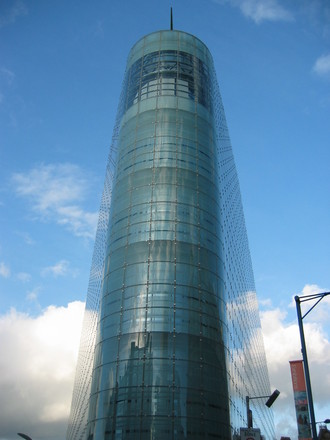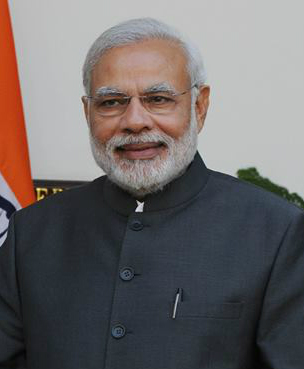10.20.15
Posted in Europe, Patents at 9:11 am by Dr. Roy Schestowitz

Summary: The EPO’s discriminatory practice when it comes to patent examination — a practice that began after Microsoft had pressured the EPO — is now mainstream news in Germany
SEVERAL days ago, the Bavarian Munich-based public-service radio and television broadcaster Bayerischer Rundfunk (established in 1924), which boasts a circulation of very many people, covered and commented on one of the latest among many EPO scandals. It’s so close to the EPO’s headquarters that management of the EPO cannot simply ignore this, or hope that the bad publicity will go away.
English and French translations of the article from Bayerischer Rundfunk have been published by SUEPO and we have made a copy in case the EPO’s management attempts takedown (with legal threats), as it has done so before to SUEPO. Takedown efforts tend to have the inverse/opposite effect, as the Streisand Effect serves to remind us all.
Here is the English translation of the report [PDF]:
European Patent Office: Preferential treatment for Microsoft, Canon & Co.
Microsoft and nine other major clients are said to be in line for a “better service” as part of a pilot project at the European Patent Office, according to an internal memo leaked by the “Techrights” blog.
By: Roland Münzel
Status: 13.10.2015
Among the big names who can expect preferential treatment from the European Patent Office (EPO) are BASF, Bayer, Canon, Ericsson, Fujitsu, Microsoft, Philips, Qualcomm and Siemens. Whether Huawei and Samsung will join them is still undecided.
Preferential treatment for big businesses
The planned special treatment for the companies named was leaked from an internal EPO memo dating from February 2015, which the Techrights blog has now posted on the Net. According to this, the Patent Office is aiming to run a pilot project from April 2016 initially with ten major clients for a year, providing them with an improved “Esprit de Service”, so as to strengthen the bonds with them.
Chosen because of close contacts
The leaked document indicates that the reason behind this is that the companies listed were among the biggest applicants for patents in 2013. The range extends from 600 applications from Microsoft to 2,833 from Samsung. The selection was apparently based on the “strength of the existing contacts”, which should make rapid implementation of the pilot project easier. More companies could then reap the benefits of the project in the second half of 2016.
Patent applications put on hold for extended periods
The memo implies that the EPO department involved with information and communications technologies is behind the project. Microsoft have apparently lodged complaints there about 450 patent applications which it seems have not been dealt with for a considerable period of time. Canon are also said to have referred to applications which have been “blatantly delayed”.
“Techrights” publishes an internal EPO-Memo [techrights.org]
SUEPO says that “JUVE reports on the decision of the Administrative Council (AC) to refer the disciplinary case of the suspended member of the Boards of Appeal (BoA) to the Enlarged Board of Appeal (EBoA). The AC did not follow the proposal of Mr Battistelli, which was in flagrant breach of Art. 23(1) EPC, to fire the suspended member.
“The social conflict has escalated further with the investigation in relation to a complaint filed with the Investigative Unit (IU) by Elodie Bergot, Principal Director Human Resources, against staff representatives and accusing Elizabeth Hardon, Munich Chair of SUEPO and the Local Staff Committee.”
The EPO’s ringleader, Mr. Battistelli, wanted to break the law again. But this time he failed. It doesn’t mean that he has quit trying; right now he and his goons are attacking this suspended member of the Boards of Appeal with gross character assassination, having done similar things to damage the dignity and reputation of Elizabeth Hardon, who has served the Office for nearly 30 years. In the process of this bullying they also seriously harmed her health, based on a letter she sent. Battistelli and his ilk should be held legally accountable for this. █
Permalink
 Send this to a friend
Send this to a friend
Posted in America, Europe, Patents at 6:57 am by Dr. Roy Schestowitz

Summary: News from around the world about patents, and software patents in particular, in light of recent and very important developments
TODAY we look at some good news and bad news regarding software patents. In order to make it easier to digest, we have decided to break it down by country/continent.
Software Patents in the US
Banner & Witcoff Ltd released an article titled “Certain Uncertainty: The Future Of Computer Software Patents” (in numerous legal sites [1, 2). It serves to reinforce our observations, as recent as last week's, that in the US software patents are arguably dying (or at least suffer a rapid decline). “Since the Alice decision came down last June,” explain the lawyers, “the world of computer software patents has been upended, both in litigation and in prosecution. In the realm of prosecution, patent applications dealing with e-commerce and business methods have been hit particularly hard at the U.S. Patent and Trademark Office (USPTO) with Alice rejections, but even those applications dealing with relatively more “technical” concepts have also been facing a harsh new reality in which eligibility rejections are lurking behind every corner and claim amendment.”
“The software patenting business seem to have collapsed due to lack of demand.”“705 Companies Have Abandoned All Their Pending Patent Applications Due to Alice Rejections,” Patent Buddy wrote earlier today, linking to the rather good Bilski Blog (still doing plenty of detailed research into such matters). To quote Robert R. Sachs, his “analysis was based on approximately 300,000 office action and notices of allowance received from Patent Advisor.”
It is nice to see some supportive statistics as in this case. This makes it easier to refute proponents of software patents (patent lawyers specialising in this area) who do what they can to distract from these Earth-shaking changes.
“Quality of patents is at gutter level.”According to recent reports such as [1, 2, 3, 4, 5, 6, 7, 8, 9, 10, 11, 12, 13, 14, 15], the US protectionism office, USPTO, moves close to its big software patents clients in Silicon Valley . Worry not, however, as according to this, it only “Plans to hire 80 examiners, 21 judges”. That’s not much. It’s probably a lot smaller (order of magnitude even) than people once foresaw. The software patenting business seem to have collapsed due to lack of demand. There are still areas, such as this one (plane designs), that require patents, but they are not anywhere near Silicon Valley. In the United States, based on some USPTO statistics, 92% of all patent applications are eventually “successful”, so the distinction between patents and patent applications is remarkably weak. Quality of patents is at gutter level and when patents are brought before a court they are likely not to survive, especially if they are software patents on abstract ideas.
Software Patents in New Zealand
Software patents in New Zealand have been a big topic this past summer because the TPP was alleged to be covertly changing New Zealand’s laws so as to create new loopholes, or simply declare software patents formally valid.
We are gratified to see that politicians like Clare Curran are now getting involved to stop this, and the media (IDG in this case) helps raise awareness. To quote an article from this week: “New Zealand’s tech sector faces an uncertain future if a hard-fought for exclusion for software patents is missing from the final text of the Trans Pacific Partnership (TPP).
“That’s the view of Labour’s ICT spokesperson Clare Curran, who believes clarity is required sooner rather than later from the Government on the issue.”
Software Patents in Australia/Canada
Selling of software patents in Australia/Canada, where the status of software patents is worse (more favourable to them) than in New Zealand, caught our eyes yesterday. To quote the Canadian press, “Techlink Entertainment’s software and its patents are a key draw for bidders looking to purchase the now-defunct Sydney firm’s personal property.”
This reminds us of a Canadian company, BlackBerry/RIM, which can still become somewhat of a patent troll or just a big pile of patents.
Why are software patents are being sold and who are they going to be sold to? Maybe some patent troll will end up grabbing them for extortion purposes.
Software Patents in Europe
Software patents in Europe have been a subject that we cover here quite a lot, sometimes in conjunction with EPO scandals. Speaking of the situation in Norway, which is not in the European union, this somewhat new article alludes to what we deem collusion between patent hoarders, or a conspiracy to pacify the public. To quote the opening paragraph: “On February 8 2012 the Department of Justice proposed new legislation regarding the establishment of pledges on IP rights. The bill was introduced by the government in the form of a proposition one year later (Prop 101 L (2013–2014)) and was approved on January 1 2015, in a process which took a lot longer than what most practitioners had expected. The new legislation came into force on July 1 2015; it is thus now possible to establish pledges on patents, patent applications and patent licences in Norway, in accordance with Sections 4 to 11 of the Mortgage Act. The new rules also require that anyone with rights under a patent must record these in order to ensure protection. The priority of the pledge is the time of registration in the official Patent Register.”
“The only “good” patent on software is one that is totally invalidated.”Patent pledges are pretty worthless, for reasons we explained many times before. They are usually used to excuse oneself for hoarding patents, which may, some time down the line, be sold to patent aggressors and then be used offensively. Thankfully, after various cases such as Oracle versus Android (Google), more people are aware of such issues. The only “good” patent on software is one that is totally invalidated. █
Permalink
 Send this to a friend
Send this to a friend
Posted in Asia, Law, Patents at 6:07 am by Dr. Roy Schestowitz
Critical decision

Summary: Indian proprietary software and Free/libre Open Source software (i.e. everything except for large multinationals’, such as Microsoft or IBM) is at great danger after terrible changes were proposed to Indian patent law
TECHRIGHTS spent a lot of time writing about software patents in India, especially recently. These have not been legal, but Modi’s government threatens to change this. Does Modi work for patent lawyers and multinationals, or will he keep his promise (like many vacuous election promises) to defend the people of India from such corporate, colonialist occupations? Recent trips to software giants in the US don’t serve to inspire much confidence in Modi right now.
Patent lawyers in India go where the money is: protecting the companies that profit from Indian deaths. Many of these patent lawyers (essentially profiteers) lobby for stronger protectionism of foreign pharmaceutical giants (driving up prices of medicine), but to make matters worse, there are those who want software patents in India because they can profit at the expense of Indian programmers. Are lawyers and their big clients (foreign companies) winning this battle?
“It is unthinkable that India can in any way benefit from software patents.”“New patent guidelines may spell trouble for Indian software developers” was the other day’s headline from Legally India, a site which correctly states that: “Every city or town, big or small, is seeing a spurt of startups that do path-breaking work in the area of software products, mobile apps and embedded products. However, these firms could soon be threatened by the dark-clouds looming large over the technology horizon of India in the form of software patents.”
It is unthinkable that India can in any way benefit from software patents. The Hindu, a large Indian news site, published “Tying up innovation in legal knots”. It said that: “While law-making in Parliament seems to have come to something of a halt over the last couple of years, the executive branch of government, in contravention of its constitutional role, is busy passing regulations that are, in essence, amendments to laws. The examples of executive overreach over the last few years are numerous — for instance, the notification of the Information Technology (Intermediaries Guidelines) Rules, 2011, which, inter alia, expanded the scope of offences under the Indian Penal Code in the context of the Internet by criminalising activities such as blasphemy.”
“If Modi and his government don’t choose to stop this madness, India will definitely shoot itself in the foot, all for multinationals’ sake (trying to attract foreign businesses at the expense or mortality of local companies).”What is happening to India? No sane person (except perhaps lobbyists of software patents) can deny that software patents would be a terrible thing for software powehouse like India. Programmers don’t want patents, they already have copyrights (instantaneously obtained and easily enforceable by law).
“Software patents back to the fore” was another news article that got published early this week. To quote: “Successive governments have supported open source software. The earlier Open Standards Policy and the recently released Open Source Software for E-Governance, are all welcome measures in this direction. How, then do we explain government’s sudden shift towards software patenting, that too through executive action and in violation of the will of the Parliament?
“Software patents are like the “living dead” in the zombie film genre that Hollywood has made popular. They just refuse to die. As many times you kill them, they revive again and keep coming back.”
If Modi and his government don’t choose to stop this madness, India will definitely shoot itself in the foot, all for multinationals’ sake (trying to attract foreign businesses at the expense or mortality of local companies). Recall what we wrote about this government earlier this year in relation to Free/libre Open Source software.
Indians should consider taking action, and not just public protests. Maybe if enough politicians, who never wrote or even saw a computer program in their entire life (not at code level), became better informed, things would quickly change, much like the debate in the media. Indian politicians need programmers to explain to them the stark difference between patent protection and copyright protection. If programmers don’t speak out, only lobbyists of companies like Microsoft will. We already saw how Microsoft worked to derail India's Free/libre Open Source software policy, behind the scenes (with help from front groups that pretend to represent India's interests). Never underestimate Microsoft’s influence in the Indian government. █
Permalink
 Send this to a friend
Send this to a friend
Posted in America, Apple, Patents at 5:23 am by Dr. Roy Schestowitz

Summary: An aggressive arm of the University of Wisconsin, the Wisconsin Alumni Research Foundation, is going after Apple, vainly demanding (and probably getting) almost a billion dollars from Apple alone, using a single patent which potentially covers just about everything with multiple CPU cores
NOT MUCH is happening in Wisconsin, which isn’t known for academic excellence (definitely not on par with redbrick universities and in the 2015 QS World University Rankings, its best university was ranked only 54th, according to Wikipedia). Microsoft lost a case in Wisconsin, having committed competition crimes there [1, 2, 3], but we haven’t heard much since then.
The University of Wisconsin is now serving to embarrass Wisconsin as a whole, by acting like a greedy opportunist and patent aggressor.
“These claims can easily be used to target not just Apple but a lot of software and many devices that have multiple cores.”The top 3 most read articles at WIPR right now are about the EPO [1, 2, 3] and number four is the Apple case that was covered by WIPR several days ago. What is it all about? A couple of articles from Ars Technica (and a patent trolling expert whom they hired after he had blogged a lot on these issues) provide a decent introduction. The patent in question is patent number 5,781,752, which based on our reading relates to memory and computation management at the CPU level (“the processor may fetch multiple instructions at a single time and an allocation circuit allocates those instructions to separate processing units.”)
These claims can easily be used to target not just Apple but a lot of software and many devices that have multiple cores. Apple is just a rich target, hence convenient to sue, but if we let Apple lose this case, who will the University of Wisconsin go after next? Watch just how much damage is caused by just one single patent. We therefore hope for appeal/s, despite the fact that we don’t support Apple in general (it is a malicious company).
“The people behind this patent receive (or received) a salary from a state university, having enjoyed their cushy, quasi-state-level job.”See the article “Apple faces $862M patent damage claim from University of Wisconsin”. To quote: “A jury has found Apple’s A7 and A8 chips violate a patent belonging to the licensing arm of the University of Wisconsin, and the world’s richest smartphone maker is now on the hook for up to $862 million in damages.
“The Wisconsin jury reached a verdict on Monday that Apple infringed US Patent No. 5,781,752, and the trial now enters a separate damages phase. The patent is owned by Wisconsin Alumni Research Foundation, a university patent-licensing organization that was suing over patents before it was cool.”
What a gross amount in so-called ‘damages’. The people behind this patent receive (or received) a salary from a state university, having enjoyed their cushy, quasi-state-level job. Do they want to become big millionaires overnight, using an old piece of paper that a state university helped them get? It’s more than just patent ‘welfare’. We have been covering the patent greed of some universities before, but noting ever came close to this.
Also see the article “Jury orders Apple to pay $234 million for infringing university patents”. It says that “Apple lost a patent case on Monday, when a federal jury in Wisconsin found that the smartphone giant infringed a patent that originated at the University of Wisconsin, and is now held by the Wisconsin Alumni Research Foundation (WARF).
“That ended the liability phase of the trial, and the judge overseeing the case decided that damages should be decided in a separate phase. The damages trial concluded today when the jury came back with its decision that Apple should pay $234 million for its infringement.”
Wow, what a ‘bargain’. Who is WARF going to go after next? █
Permalink
 Send this to a friend
Send this to a friend
Posted in Site News at 4:55 am by Dr. Roy Schestowitz
Target: Manchester

Summary: An aggressive effort to infiltrate our servers (125,000 times in one day, peaking at particular hours) considerably slowed down the Web site, in spite of overzealous filtering
Negative publicity is something that EPO (as in its management) simply cannot tolerate. Remember how negative paragraphs got removed from news articles after payments from the EPO.
Techrights has, a few times over the years*, come under attacks from numerous entities but at no point in its entire history has it come under the same sorts of attack it must deal with whilst writing about EPO abuses. We suspect there may be a strong correlation between the covered subjects and the willingness to silence the coverage. Almost 80% of our articles are about patents nowadays.
“In our eyes, it was always likely to have been someone connected to the EPO or someone who works there.”Yesterday, as some people with special interest in the EPO told us, the site became unavailable. The volume of attacks on Techrights had gone up at around 11AM (G.M.T.) and at some point it doubled to around 50% of all traffic (it was around 25% of the traffic at 11AM). Brute force was being used to overcome our increasingly sophisticated filters, computationally trained and improved after previous such attacks.
Media articles coming from Germany correctly accuse the EPO of all sorts of things (and they cite Techrights), but all of them fail to mention that the EPO banned the whole site (for the first time ever). This in its own right is quite a scandalous thing. This kind of censorship we know about for sure, but we cannot confirm EPO role in the cyber-attacks. Some legitimate visitors (IP addresses) may accidentally get banned (barred from accessing Techrights) because the server is aggressively filtering traffic right now, in an effort to block the cracking attempts. We may have managed to drive away the attacker/s.
Of relevance to this issue are a few older article. Recall when SUEPO came under DDOS attacks (after and before SUEPO E-mails got altogether censored, meaning that a silencing campaign against unions was already well under way). Recall that Techrights came under DDOS attacks at around the same time (an especially sensitive time), leading to reasonable speculations. In our eyes, it was always likely to have been somebody connected to the EPO or someone who works there. For reasons explained here before, without legal action which compels law enforcement to check routers and zombie PCs (botnets), it is hard to know with high enough degree of certainty who commanders and orchestrates all this (the botmaster or script kiddie).
Let us assume that it’s a deterrence tactic (against the author/Webmaster/system administrator), or an effort to make it harder for people to access the Web site. Looking back at this nuisance, which started late last year, first was potentially an attack on the Web site (to no avail because my daytime job involves dealing with exactly these types of scenarios and we patiently fought back by filtering any attacks), then blocking the entire site (Office-wide), which makes one wonder what can come next, given that EPO staff can still access the site (off duty).
It has been extremely hard to report abuse about the source of yesterday’s attacks on Techrights because the hosting is provided by rogue domain with rogue SSL certificates (or none). It’s incredibly hard to obtain contact details. This was a European cluster that attacked the site. Most of the cracking attempts against Techrights come from this same cluster of machines (with IP pool in Spain); we are talking about exceptionally frequent cracking attempts against the CMS (many hundreds of times per minute) and this bypasses caches and other basic defenses. If Techrights was ever forced into a CDN for supposed protection, no doubt there would be no true privacy for visitors. Without filtering, about one quarter of the traffic in Techrights would be cracking attempts, slowing the site down or taking it down for considerably long periods of time (not just seconds). Wonder who’s doing it? We sure wonder, but as people who do this for a living can tell, it’s a hard question to answer, especially without access to servers and probably a warrant to legally delve into them.
If these attacks ultimately just try to hijack and deface the site (or obtain a list of visitors), then they aren’t doing a very professional job. These must be just brute force login attempts — many attempts at cracking, perhaps with a common passwords dictionary. Because it’s done with brute force (as long as the server can still respond), it induces very high load, as a side effect; hence the server issues. This is similar to what SUEPO reported earlier this year, whereupon it filed a complaint with the authorities. █
___
* The first time it happened we lost our Web host and the site was left orphaned, because the Web host was unable and unwilling to help us cope with a DDOS attack on a shared server.
Permalink
 Send this to a friend
Send this to a friend






















 Content is available under CC-BY-SA
Content is available under CC-BY-SA